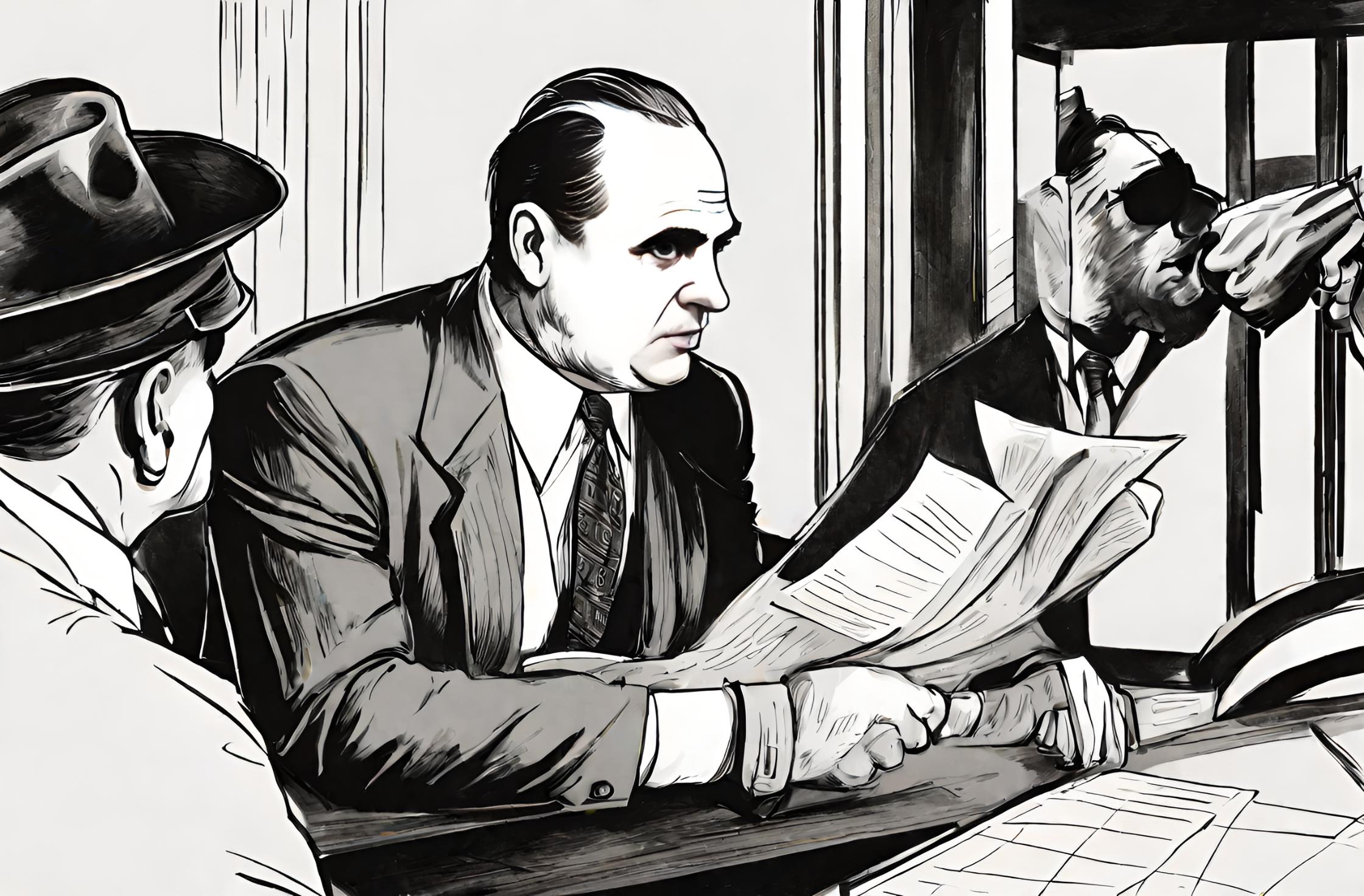Flashback to October 17
American History

In the annals of American history, few names are as instantly recognizable as that of Al Capone. Known as a notorious gangster and the face of organized crime during the Prohibition Era, Capone’s reign remained unchallenged until a monumental event that transpired on October 17, 1931, in Chicago, Illinois. The flamboyant gangster was finally brought down, surprisingly, not for the numerous criminal activities he was supposedly running, but for tax evasion.
Avoiding the conventional routes that other law enforcement agencies had attempted unsuccessfully, the U.S. government targeted Capone’s finances. After a laborious two-year investigation, the authorities were successful in their efforts, resulting in Capone’s incarceration for 11 years and an enormous fine of $80,000 – a considerable sum for that era.
Al Capone, often referred to by the moniker “Scarface,” rose to prominence in the gang-ridden streets of Chicago. His name was synonymous with the illicit liquor trade during the Prohibition period, becoming one of America’s most notorious public enemies. Yet, the law’s long arm was unable to unequivocally link him to the multitude of crimes he supposedly masterminded, pushing them to explore more innovative channels to stop his reign of terror.
The U.S. government, under the lead of President Herbert Hoover, decided to take an unanticipated turn. A special unit was put together to find a way, any possible way, to legally indict this criminal mastermind. And they did – through income tax evasion.
Notably, Eliot Ness, the celebrated Prohibition agent, was not directly involved in this process, despite the popular myth to the contrary. The actual task of investigating Capone’s finances was delegated to Frank J. Wilson, an agent in the U.S. Treasury Department’s Special Intelligence Unit. Combing meticulously through ledgers and records, the team finally hit upon information led to Capone’s undoing.
The tax-evasion charge officially lodged against Capone stated that he had failed to report illicit income from various activities, including the bootleg liquor trade and gambling. In the trial that commenced on October 6, 1931, despite Capone’s attempts to control the narrative, the prosecution presented irrefutable evidence of his massive income and his clear intent to evade taxes.
After a quick nine-hour deliberation, the jury returned with a guilty verdict on October 17, 1931. Capone, who was accustomed to wielding power with unabated arrogance, was shocked and powerless. The Chicago “kingpin” was sentenced to serve 11 years in prison and was slapped with a hefty $80,000 fine.
The sentence and its subsequent implementation marked a turning point in the fight against organized crime in the U.S. It signaled a shift in tactics by law enforcement agencies who now knew they could combat crime by attacking its financial underpinnings rather than chase after elusive evidence of direct criminal activities.
His conviction prompted the question: How was one of America’s most notorious criminals convicted for something as mundane as tax evasion rather than the various heinous crimes he was known to orchestrate? Yet, it underscored the unique ingenuity of the U.S. Justice Department. Where traditional methods had failed, a relentless focus on mundane financial irregularities finally laid the foundation for the once untouchable Capone’s fall.
Capone’s fate served as a stark reminder to all those engaged in illegal activities that crime does eventually pay- but not in the way they might expect. Indeed, from that day forward, tax evasion has become a critical tool in law enforcement’s arsenal, an enduring footprint left by Al Capone’s conviction on October 17, 1931.
This notorious event, the conviction of American gangster Al Capone, was a pivotal moment in our nation’s fight against organized crime. It offers a rich lens into the socio-political era of the 1930s, offering a fascinating glimpse into the use of financial imperfections in tackling seemingly undefeatable criminal structures.
We strive for accuracy. If you see something that doesn't look right, click here to contact us!
Sponsored Content

American gangster Al Capone…
On October 17, 1931,…

Knickerbocker Engine Company Number…
"Experience the rich history…

A fire at a…
Commemorating the tragic 1966…

The United States population…
"The United States Census…

Yoshihiro Hattori, a 16-year-old…
On October 17, 1992,…

Ohio national guard kills…
"On October 17, 1894,…

